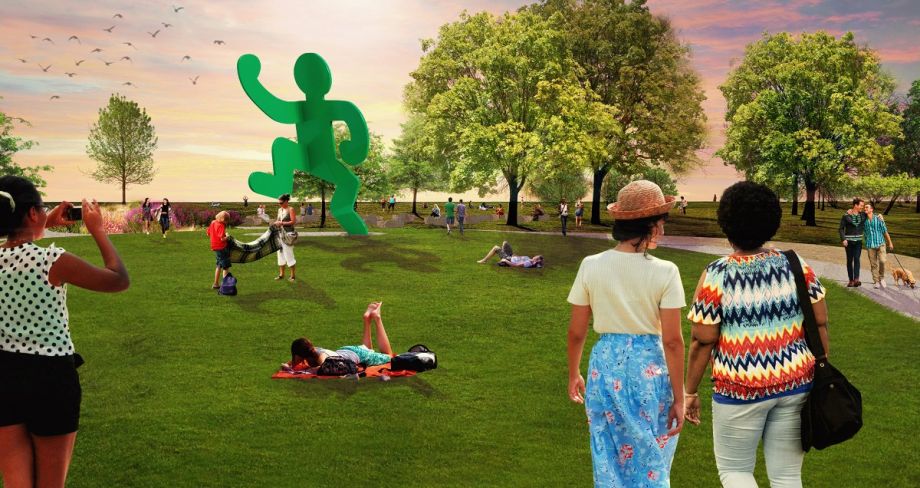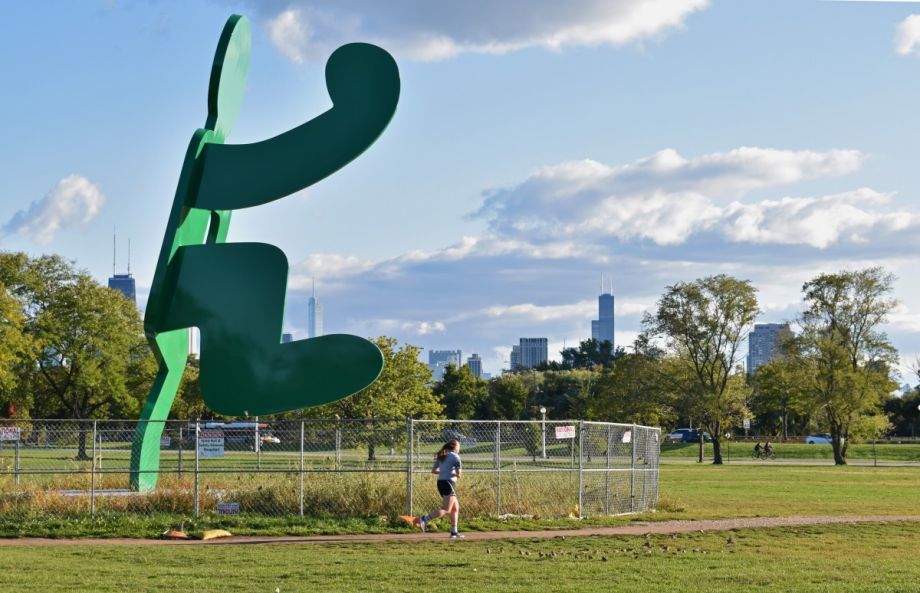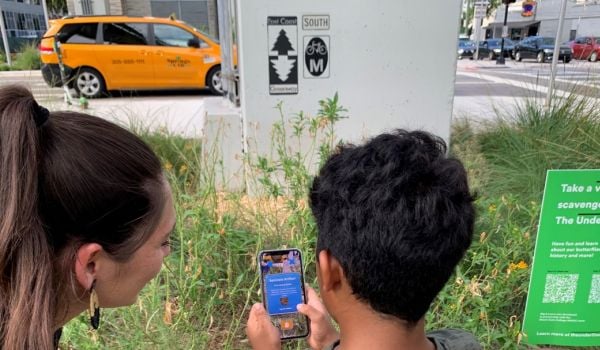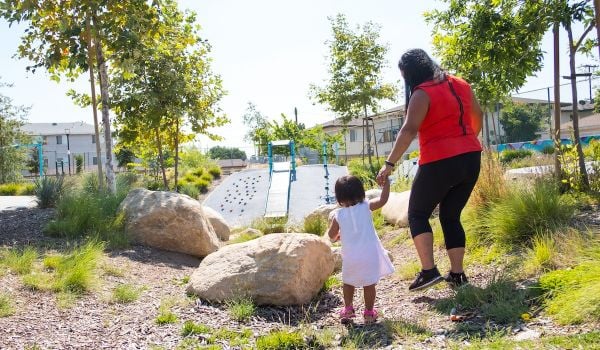As the COVID-19 pandemic has disrupted all normal patterns of urban life, including the public’s access to recreational amenities and civic spaces—the fabric that knits our neighborhood together is being tested and is rising to new challenges. Many of Chicago’s parks and civic spaces are playing bigger roles in daily life, with more people using them during what used to be “off” hours. At the same time, the city’s parks are playing a central role in debates about our society’s priorities and who these spaces serve. The conversation largely centers on the role these spaces should play in representing our civic values and the degree to which they should change with the times and with us.
In Chicago, communities are showing their values as new public spaces come to life and community activists see traction in their long struggle to reclaim historic public spaces in their neighborhoods.
Strolling through Mary Bartelme Park in Chicago’s trendy West Loop neighborhood, you will not immediately understand Mary Bartelme’s legacy as a teacher, Illinois’ first female judge, and an advocate for women and children, but you will understand she was important and that the people of Chicago aim to remember her. While this park memorializes Bartelme, it is not a monument to her. It is a public space designed for the people of the neighborhood and which celebrates a Chicagoan who represents the community’s shared civic aspirations of inclusion, universal opportunity, equal justice, and charity.
Choosing Bartelme as the moniker for the space honors her achievements while implicitly acknowledging the injustices of the past that, until less than a century ago, prevented someone like her from reaching such a prestigious office.
One notable instance of a community coming together to honor society’s capacity to change for the better is the forthcoming AIDS Garden Chicago. Soon to be nestled into the lawns of northern Lincoln Park, south of Belmont Harbor in the Lakeview neighborhood, this Design Workshop-designed garden will honor the memory of Chicagoans lost to the AIDS epidemic, from the 1980s through the present. The new 2.5-acre garden came to life through a partnership between Chicago Alderman Tom Tunney, the Chicago Park District, the Chicago Parks Foundation, and several community and neighborhood groups. While its only visible feature today is the 30-foot tall green metal sculpture “Self-Portrait” by AIDS activist and artist Keith Haring, it will soon comprise intimate spaces full of plantings that are designed for gathering, remembrance, reflection and celebration.
The implicit story of this new park references the changing cultural attitude towards the gay and queer communities, not just in Chicago, but nationally. LGBTQ individuals represent the overwhelming majority of HIV/AIDS fatalities throughout the crisis and their plight was too often overlooked by governments and civic leaders throughout the latter decades of the twentieth century. The location of the garden memorializes a popular lakefront space that was unofficially claimed by the community as early as the 1960s. Photographs from the time show dozens of primarily gay men gathered at the “Belmont Rocks”, as they were known—smiling, sunbathing, and enjoying Chicago’s sunny summer days as a community. Just decades later, in the same place where the community gathered in a less tolerant world, the city is building a space that memorializes their plight, honors their memory, and recognizes their dignity.

(Rendering courtesy Design Workshop)
While creating new gathering spaces is a terrific way to invest in communities and provide recognition to those groups that call them home, Chicago is exploring other opportunities to ensure it continues to reshape its urban landscapes to reflect the community’s civic values. Similar themes of representation, remediation and memorialization are found in the efforts to rename public spaces, especially following recent civil rights protests and demonstrations around the country in response to police killings of Black Americans. For example, after years of attempts by local students and community activists, a historic public park on the city’s West Side that was originally named for Stephen A. Douglas — a nineteenth-century senator and sympathizer of slavery — has been rededicated for Frederick Douglass, the abolitionist leader and Black intellectual of the same era.
This community momentum may well lead to other name changes at historic Chicago parks, such as the South Side’s Jackson and Washington Parks, where community activists have been seeking to replace the names of the U.S. presidents for years, largely due to their controversial legacy as slaveholders. Such changes, while seemingly superficial, make for powerful statements about who these spaces serve and the values our society embraces.
When we choose to honor the legacies, accomplishments and struggles of those who embodied those civic values that define us today, we communicate the capacity of our society to change, grow and evolve into a greater recognition of fairness and justice. If we choose to continue to reclaim control of these spaces, communities can begin to feel ownership over these spaces in ways that have not been possible before.
The question that should ultimately guide our decisions about both the creation of new public space and the reconsideration of existing ones is: Who is public space for? Should it be forever committed to those people and ideas that came before us, regardless of their appropriateness to the present? Or should it be flexible and serve the needs, preferences and dignity of those individuals and communities who collectively own them today? As we are hearing loudly and clearly from communities in Chicago—these spaces belong to the present and should reflect the values of the present.
Does moving our public spaces away from the morals, messages and people who no longer represent us constitute meaningful change? The answer is yes and no. No, because there is clearly more tangible progress to be made in shaping our cities and neighborhoods to better serve and respect the people who live there today. But yes, because changing a name can and is leading to larger conversations about the drought of opportunity and investment that some communities face and the legacies of racism and wrongdoing that led them there. Ultimately, every small step towards shaping a more holistic and inclusive urban landscape that is true to our past, representative of our present, and reflective of those values that will guide our future is progress.

Chris Freda is a planner, designer, and project manager at Design Workshop.

Manisha Kaul is principal/Chicago studio director at Design Workshop.















